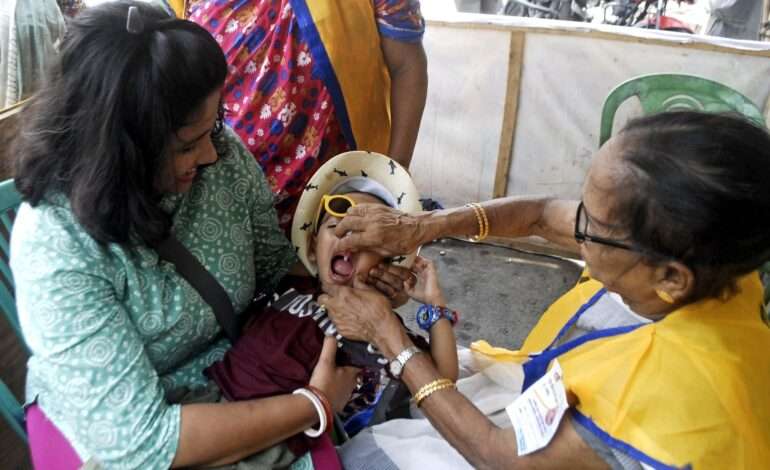
Lancet study warns of rising risk as global childhood vaccinations decline
Millions of children are at increased risk of preventable diseases due to a troubling decline in global childhood vaccination coverage since 2010, according to a new study published in The Lancet.
The study, led by researchers from the Institute for Health Metrics and Evaluation (IHME) at the University of Washington, analysed immunisation data from 204 countries for 11 core vaccines recommended by the World Health Organization (WHO), including those for measles, diphtheria, tetanus, whooping cough, polio, and tuberculosis.
Between 1980 and 2023, global vaccine coverage had doubled, and the number of “zero-dose” children — those who never received any routine vaccines — fell sharply from 58.8 million in 1980 to 14.7 million in 2019. However, progress has slowed or reversed in recent years.
From 2010 to 2019, measles vaccine coverage declined in 100 countries, and 21 of 36 high-income countries saw decreases in at least one core vaccine. The Covid-19 pandemic accelerated this decline, with 15.6 million children missing measles or full diphtheria-tetanus-pertussis (DTP) doses between 2020 and 2023.
An additional 12.8 million children became zero-dose during the pandemic years. In 2023 alone, over half of the world’s 15.7 million unvaccinated children lived in just eight countries — Nigeria, India, DR Congo, Ethiopia, Somalia, Sudan, Indonesia, and Brazil.
Dr. Jonathan Mosser of IHME warned, “Despite 50 years of global progress, millions of children remain unvaccinated, due in part to pandemic disruptions, systemic inequalities, and rising vaccine hesitancy.”
The study urged urgent investments in routine immunisation, targeted interventions, and equitable vaccine access to prevent a resurgence of deadly diseases like measles and polio.